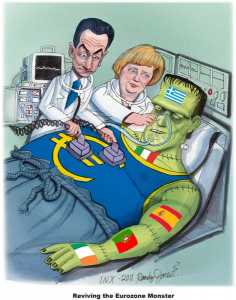
Pat Shannahan for msnbc.com
Carla couldn't find work in the legal profession, so she's dancing in a topless bar now.
By Bob Sullivan
When Carla graduated 10 years ago, she thought her law degree would be a permanent ticket to a high-paying job. But instead of selling her mind, Carla is selling her body. After student loans, debt, a layoff and unemployment battered her bank account, she now finds herself in an almost unbelievable position – dancing in a topless bar.
"Did I ever think I’d be taking my top off for rent money? No. I was in my mid-30s and had never danced before," said Carla, who asked that we use her stage name and withhold her identity and some personal details. "As a little girl, I never thought to myself, 'I just want to grow up and be a stripper,’ or, ‘All I ever wanted to do in life is climb in the lap of sweaty stranger and take my top off.'
"But, with our economy the way it is, especially in smaller cities ... you strip or you starve," she said.
Last month, as part of our coverage of America’s economic malaise,
we chronicled the story of a young father who took a job as a firefighter in Iraq after he couldn’t find work in Miami. Then we asked msnbc.com readers: What crazy things are you doing to make ends meet? This is the second of three reader stories we’ll share. Last week,
we wrote about a man who has turned to dumpster diving to keep food on the table for his three children. Now, we tell Carla's story.
Carla grew up in the Midwest and moved to the West Coast in the late ‘90s to fulfill her dream of earning her law degree. After graduation, she worked for nine years putting her degree to use, but she had entered the crowded legal profession at the wrong time. When she was laid off in 2009, she couldn't find work.
"At first, I worked as a waitress, and a cashier in gas station," she said.
'Act of desperation'As her prospects grew dim, she went back to school to earn a master’s degree, hoping to bolster her credentials. But her financial aid came in lower than expected, her credit was battered and she struggled to find part-time work in her new town to keep her afloat.
"I went around to see if could get a job as cocktail waitress, but there was not a single retail or waitress job. No one was hiring, except for the topless places," she said. “It was an act of desperation.”
She started out serving drinks as a waitress, but moved quickly to dancing "because that's where the money is, and that's what I needed."
On an average day, she earns $20 an hour, but on a good weekend night, she might pull in $50 an hour –enough to get her finances back on track. She can set her own hours, which means she can squeeze in reading and writing papers around her work schedule.
"Sometimes it sucks, it’s degrading and I hate it, but it is necessary right now and I’m glad I have the option of doing it," Carla said. "My parents and a few friends know and they were horrified at first. But now they are proud of me for sucking it up and doing what I have to do."
Carla has her limits, as does the topless bar she works in. She stays away from private rooms even though women can make $500 to $1,000 a night there.
Local rules allow lap dances – as long as the patrons don’t touch the dancers – and Carla sometimes performs them. The bar doesn't have a full nudity license, and that’s just as well with Carla; she'd need a personal license to work at a place like that and she wants no record of her temporary stint in the dancing business.

Pat Shannahan for msnbc.com
Carla hopes she'll be finished with dancing in about six months.
"While I am proud of making a living by any legal means available to me, I realize that some will think of me as just a glorified legal prostitute and I would very much like to move on with my life and career at the earliest available opportunity," she said.
Ugly momentsDespite these precautions, Carla said she has had her share of ugly moments. Not all men follow the rules; some have tried to overpower her and “grab her, bite her, kiss her, or get their hands under the bottoms (I) wear.” Bouncers come to her aid, but they can't be everywhere all the time.
"I've had men overcome me," she said. "Luckily help has arrived and nothing has happened. But I have been scared."
Carla agreed to talk about her experience in part because she said it has been profound – in one sense, the job is less hostile than any law office she’s worked in, she said. Coming from the cutthroat legal profession, she has been stunned by the camaraderie among the women she works with.
"I thought the other women I worked with would be competitive and not supportive. We are 'fighting' over the same dollars," she said. "But my female coworkers are the best coworkers I've ever had."
Many are in the same situation she is, she said: forced by their economic situation to perform work they would have never considered in the past.
"I work with war widows, a nurse, a med student, women who have had to go to work to save their home after their husbands have lost their jobs, and others who do this as a means to an end and who do not fit the profile of junkie/prostitute/dancer. … What we all have in common is being in a tight spot financially and living in an economy that provides limited options right now, " she said. "I'd be willing to bet that there are women like me working in it all over the country, out of necessity and not because our goal in life was to appear topless in front of … creepy guys."
She's also been horrified by the way dancers are treated by some men she encounters.
'Some real creeps'"I was shocked at how horribly some men treat us. I realized that I was much more naive than I thought I was," she said. On the other hand, the bar and its patrons sometimes surprise her. “While there are some real creeps that come in, there are also some very sweet guys who are regular customers and who I genuinely enjoy knowing . The stereotype that says that only dirty old men frequent nudie bars is incorrect."
She gets asked out often, she said, in situations that would be amusing if they weren't so sad.
"Men aren't quite as sneaky as they think they are,” she said. Even in a strip club, they try to convince her that they aren’t just hunting for sex. “They think their motivations are transparent, when they aren't at all.”
Believe it or not, she said she feels lucky, because she has a male friend at school who's in a similar financial situation, "but there's no male equivalent to what I'm doing. At least I have the option,” she said.
She says she’s been humbled by the experience, too.
"I am no better than the next dancer by virtue of my education or previous work experience. The universe has a funny way of putting a person in their place,” she said. “I have learned that I still have a lot to learn about life but now I have some incredible female mentors who continually inspire me with their courage and work ethic."
She's also learned to "never say never," about things you may do in life. She's almost finished with school, and hopes to stop dancing soon, but figures that "realistically, I'll probably have to keep dancing until I get offered a full-time job. Which means I'll be doing it for another six months, at least."
When she does take a new job, she's leaving the medium-sized city she's in, with no plans to return.
"I cannot wait to start my life over elsewhere doing something different but I will always be grateful for the lessons I've learned dancing and will never again look down on anyone who works in this industry," she said.
NEXT: With no prospects at home in Eastern Pennsylvania, Bill is selling everything he owns to buy a cheap RV and will travel the country taking piece work wherever he can find it, following the trail of the dust bowl migration in the 1930s.









